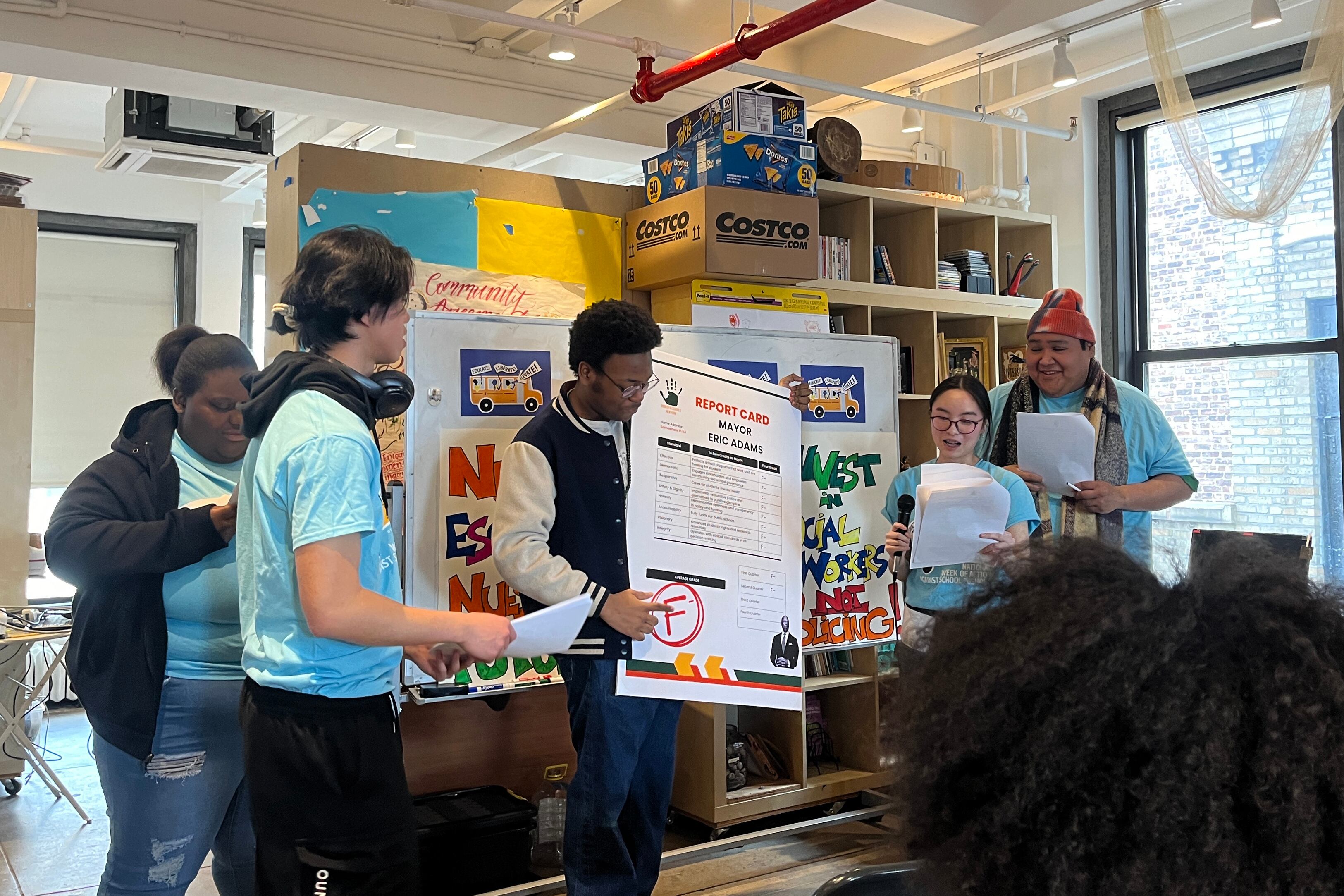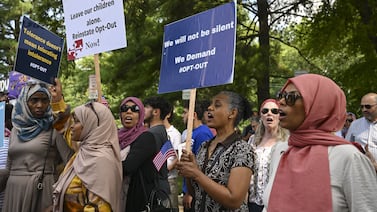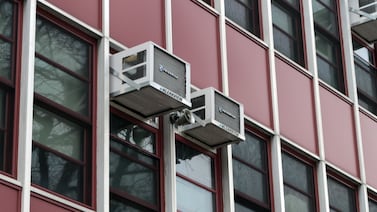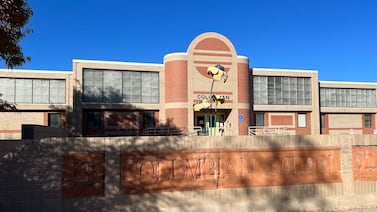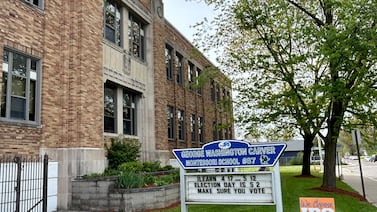Sign up for Chalkbeat New York’s free daily newsletter to keep up with NYC’s public schools.
During a lesson on the Black Lives Matter movement in her first year of high school, Lexi Greenberg was shocked to hear two students in her class making insensitive and offensive remarks.
“I left the lesson feeling angry and alone,” she said, noting she was the only Black student in the class. Lexi approached staff at Millennium Brooklyn High School, where just 14% of students are Black, and asked for the students to be suspended.
Instead, the school counselor and principal urged her to meet with the students before the school pursued any potential disciplinary action.
She was reluctant at first, but Lexi said meeting with her classmates helped her quickly realize they’d spoken from a place of ignorance, rather than harm. They were “extremely apologetic and regretful,” and after the meeting, they became her first friends in high school.
Lexi, now a senior, remains close with those students today, and is a founding member of her school’s Restorative Justice Action Team.
“None of the wonderful things that have happened to me in high school would have happened if I had pushed for suspension,” she said. “I made a choice to listen and see the people on the other side of the problem instead of burying myself in resentment and hate, and that opened me up to a whole new universe of joy and acceptance.”
Lexi is one of the dozens of students urging the city to increase funding for restorative justice — a philosophy rooted in providing students and staff space to talk through conflicts without resorting to more punitive measures. She shared her story Thursday as part of the “Dignity in Schools” coalition, a group of New York City students, families, educators, and advocates that are calling for the city to invest millions of dollars in restorative justice and mental health programs in schools, while diverting funding away from policing.
Roughly 30 students gathered in Manhattan at the YA-YA Network, a non-profit organization that promotes youth advocacy, to launch their new budget campaign. It comes amid broad fiscal concerns surrounding the city’s school system.
Though Mayor Eric Adams announced Wednesday that a planned third round of budget cuts will no longer be necessary, previous cuts have slashed more than $700 million from the Education Department’s budget for the next fiscal year. Meanwhile, the school system stands to lose hundreds of millions of dollars as federal pandemic relief funds will soon expire.
“What is unconscionable is that we’re in the midst of a youth mental health crisis,” said Tina Zeng, a Brooklyn high school senior and YA-YA student organizer. “Having these proposed budget cuts will have devastating impacts on restorative justice, student mental health … and so much more.”
As part of the campaign, the coalition is urging city officials to protect critical programs propped up by the federal funds, and make further investments in restorative justice programs.
In particular, the coalition called on the city to protect $21 million invested in restorative justice programs, $5 million that went toward mental health services, and $77 million that helped hire counselors, social workers, and mental health professionals.
Students also called for $75 million to support hiring school-based restorative justice coordinators at 500 high schools — increasing by an additional $55 million annually for three years — as well as $75 million to hire community members into positions that support schools, such as youth advocates, parent coordinators, paraprofessionals, community outreach coordinators, counselors, and social workers.
Under the investments the campaign is seeking, $10 million would also be put toward restorative justice training, curriculums, and other school-based resources and opportunities.
The coalition wants the city to redirect more than $400 million in school police funding to other school resources — calling for the city to stop all recruiting and training of new school police officers and end funding for new or existing student surveillance and scanning equipment. Students argued that police are ill-equipped to defuse tension and conflicts in schools, and that their presence disproportionately harms students of color and others from marginalized communities.
Tensions between students and school-based police officers can often be fraught, and advocates have long pointed to data showing Black and Latino students can be disproportionately subjected to police interventions in the city’s schools.
One student who spoke at the campaign launch said despite having school safety agents and a robust surveillance system on campus, it still took roughly 15 minutes for an officer to arrive when a fight broke out, and students had to work to defuse the situation in the meantime. When the students involved returned from suspension, the dispute continued.
Some schools have moved toward embracing restorative justice practices in recent years. Still, city data showed suspensions spiked during the last school year, returning to pre-pandemic levels.
Jenna Lyle, a spokesperson for the city’s Education Department, said in a statement that the department would continue to prioritize restorative justice.
“Education and safety is at the core of all we do,” she said. “We continue to prioritize our restorative justice work, as well as programs like Project Pivot, which puts additional funding in the hands of our schools to engage independently selected community organizations directly, made up of individuals from the very communities they serve and in accordance with participating schools’ needs.”
City Councilmember Rita Joseph, chair of the council’s education committee and an attendee of the Thursday campaign launch, encouraged students to continue their work and help sway her colleagues in City Hall.
“You already got me,” she said. “But we have 50 other people we need to bring on board.”
Julian Shen-Berro is a reporter covering New York City. Contact him at jshen-berro@chalkbeat.org.

